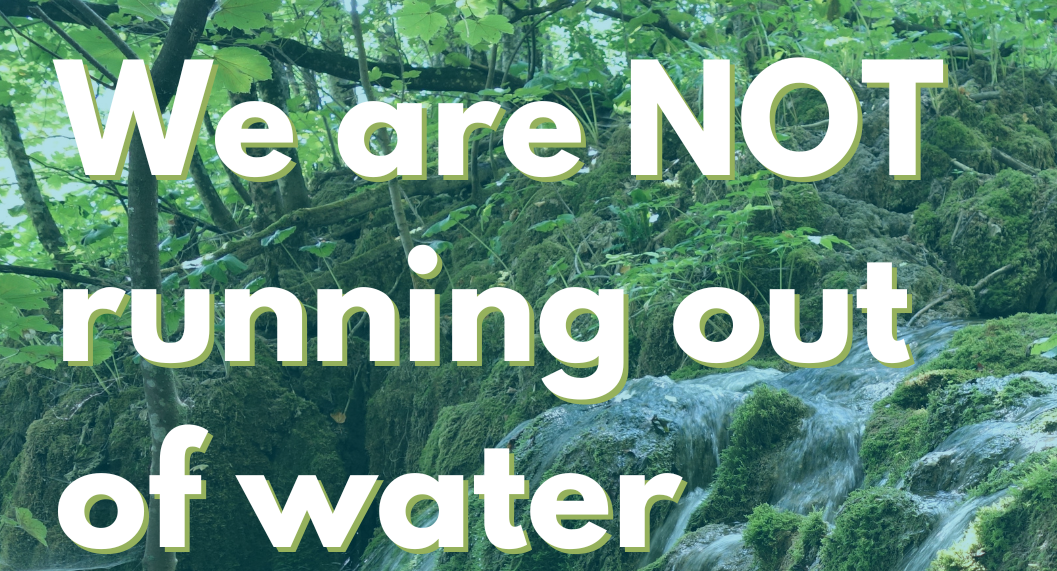This opinion article was written by Penny Beames and originally appeared April 21, 2023, on LinkedIn.
We are not running out of water. The amount of freshwater on the planet doesn’t change that much from year to year. Sure, some slow-moving aquifers may relinquish or swallow more water than usual. And a warmer atmosphere can hold more moisture. But, by and large, the amount of freshwater cycling the globe is pretty constant.
Where it’s flowing and falling—and when—is variable. And getting more so. But the narrative that we as a global community are running out of water is simply not true.
It’s an arresting narrative. It calls to mind urban crises like those in Cape Town and Sao Paolo, cities who came within days of running out of drinking water supplies. Or desiccated livestock lying dead across the parched African landscape.
It also conjures visions of conflict. Countless books and articles over the last twenty-five years have posited that “water is the new oil,” inferring that major wars will eventually be fought over scarce water supplies.
But the actual story of water on this planet is much more complicated. In Cape Town and Sao Paolo, water management and rapid deforestation contributed to water availability issues. And the aid workers who assist those who lose livestock to drought never worry about running out of food or water. Even the role drought played in spurring the conflict in Syria has been called into question.
Does that mean that water problems aren’t causing immense suffering? Absolutely not. Consecutive failed rainy seasons in Ethiopia are impacting the livelihoods and food security of millions.
Too much water can also be a problem. Leaders and activists took to the streets in northern Peru this week to protest the national government’s lackluster response to months of record rainfall in the region. Roads, bridges, canals, and thousands of homes have been washed away.
Nobody wants a water crisis, be that local or global, no matter now riveting predictions of scarcity and conflict might be. But the way we talk about water needs to be more nuanced if we’re going to plan for its increasing unpredictability and equitably share it. Because the location and timing of water is changing, and that is a global phenomenon.
If our intention is to avoid water conflict, then framing it as a finite resource in a zero-sum-game sets up to fail.

